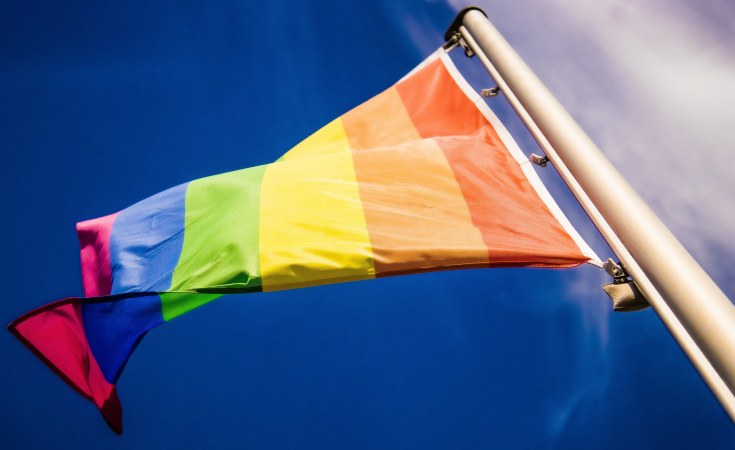In East African countries, people with diverse sexual orientations live in constant fear. Anti-LGBTQ rhetoric is on the rise in in the region as lawmakers in Uganda vote to pass new legislation to punish the community.
Trigger warning: Disturbing details follow below.
Eric Ndawula identifies as gay in Uganda. That comes at a high cost in a country that now wants to introduce even more draconian laws to punish lesbian, gay, bisexual, transgender and queer (LGBTQ) people.
Ndawula has been shunned by his family because of his sexual orientation. He has also faced arrests and evictions.
"We were raided by a mob who wanted to attack us and kill us. But when we called the police to our assistance, we were instead arrested," he told DW.
Ndawula said he and others were then subjected to forced anal examinations by authorities.
"At the end of the day, we became suspects of carnal knowledge against the order of nature, even though we called the police for support from a mob that was going to lynch us," he said.
The situation for the LGBTQ community in Uganda, where same-sex relations have been outlawed since the colonial era, is expected to get much worse.
New legislation was passed by the country's lawmakers on Tuesday and now awaits the consent of President Yoweri Museveni. The Anti-Homosexuality Bill provides for prison terms of up to 10 years in prison. As lawmakers debated the draft law on March 21, there was little sign of opposition.
Anti-LGBTQ rhetoric spiking
Asuman Balasalirwa, the lawmaker who put forward the controversial bill, told DW that it had widespread support.
"If you went to my constituency of Bugiri Municipality and ask the people whether they are with me on this issue, they will tell you we are behind our MP," he told DW.
Angel Maxine, a transgender woman and leading advocate for LGBTQ rights in Ghana, has been monitoring Uganda's bid to criminalize homosexuality and identifying as LGBTQ.
"For me, I call it the reincarnation of colonialism. That is how the whole picture of what is happening in Africa looks to me. For me, it makes no sense," she told DW.
The lawmaker Balasalirwa has been lashing out at the LGBTQ community.
"Why are they invading our schools? Why are they invading our children? They are just being provocative. So, you want to invade our children and we look on? You want to invade our schools and we look on?" he said in a DW interview.
In 2014, Uganda's courts nullified draft anti-LGBTQ legislation on grounds that the parliament had not followed procedure. Balasalirwa's bill was similar to what was tabled in parliament at the time.
Politician talks of 'castration' in Tanzania
In Ghana, an anti-LGBTQ bill is awaiting debate in parliament. Maxine is one of many activists who are openly opposing it.
"Criminalizing other human beings, telling other human beings how to live their lives, telling other human beings that it's like this there's no fluidity, you can't be yourself. You can't, If you do, you are going to prison. It affects the mental health of the human being," Maxine says.
Ndawula and Maxine agree that legislation to criminalize the LGBTQ community reinforces the homophobia and hate people like themselves experience.
The rights of the LGBTQ community has come under increasing threat in Tanzania too. Same-sex relationships are illegal and convictions can lead to lengthy prison terms. Leading politicians are now calling for even harsher punishment.
On March 19, Mary Chatanda, the head of the women's wing of the ruling Chama Cha Mapinduzi party called for the castration of homosexual men.
"We ask the government to make stiff penalties to offences related to same-sex activities. Such people should be castrated if found guilty," Chatanda said. She was speaking at a public gathering to mark President Samia Suluhu Hassan's second year in office.
Kenya bans books with LGBTQ themes
According to Maxine, anti-LGBTQ statements are meant to intimidate the LGBTQ community.
"Castrating somebody won't change their feelings. Castrating somebody won't change who they are," Maxine told DW.
"If I am a trans woman and I still have my penis and you castrate me, you are affirming me of who I am because you still can't change my feelings of who I want to be with or who I love or how I want to be myself or how I want you. You can't change the feelings of a human being."
Last month, the Kenyan government intensified its restrictions on imported books with LGBT themes after public outcry. Parents and religious leaders in the country had demanded an audit of such books.
In late February, a Supreme Court that gave an LGBTQ and intersex rights group the green light to register as a non-governmental organization sparked an outcry.
Even President William Ruto criticized the ruling, saying homosexuality remained unacceptable in Kenya.
Edited by Benita van Eyssen


